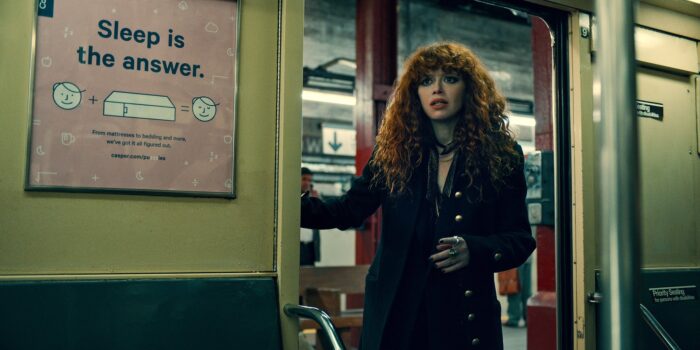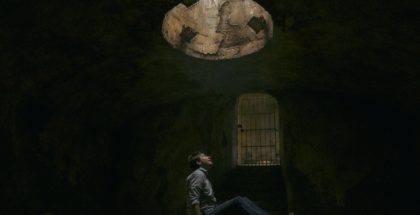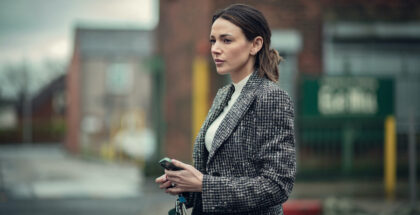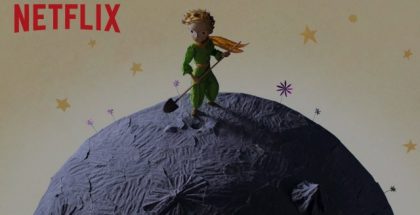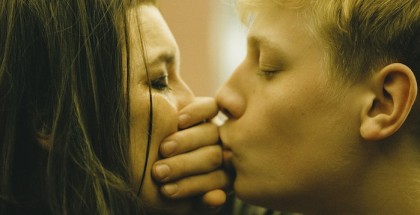Russian Doll Season 2 review: A wild ride
Review Overview
Originality
9Ambition
9Balance
7Sophie Davies | On 26, Apr 2022
Warning: This contains spoilers for Season 1 of Russian Doll. Haven’t seen it? Catch up with our review here.
“The only reason to go into the past is to change shit! Haven’t you ever seen a movie?”
In Season 1 of Russian Doll, eccentric New Yorker Nadia (Natasha Lyonne) got stuck in a time loop, repeatedly dying and coming back to life at her 36th birthday party. She eventually bumped into Alan (Charlie Barnett), who was experiencing the same phenomenon, and together they found a way to end the loop by saving each other’s lives.
Everything was wrapped up in such a moving, satisfying way that it was easy to feel wary when Netflix announced they had commissioned more. Thankfully, Season 2 of Russian Doll proves to be just as inventive and compelling as it was the first time around, never becoming predictable or repetitive as it continues to play with time.
When we catch up with Nadia, she’s approaching her 40th birthday. Over the past few years, she’s kept in touch with Alan and their lives have been event-free in terms of freak supernatural incidents. But this all changes when she takes the subway and finds herself suddenly in 1982, inhabiting the body of her pregnant mother, Nora (Chloe Sevigny). “The universe finally found something worse than death,” she tells a baffled Alan, once she’s back in the present day.
In comparison to how Season 1 began, this second outing feels like it has more propulsion from the start. Because Nadia has experienced something similar before, she quickly takes time travel in her stride, instead of wasting time looking for an explanation of why it’s happening to her. It also feels like a natural progression that Season 2 expands its scope to Nadia’s family history. By delving into some complicated mother-daughter relationships, the title of the show unexpectedly gains a new significance.
While spending time literally in her shoes, Nadia gets more of an insight into her mother, who suffered from mental illness and died when Nadia was young. She also learns more about Nora’s difficult relationship with her own mother, a Holocaust survivor from whom she stole (and lost) a bag of valuable gold Krugerrand coins.
Once Nadia realises she can travel between 2022 and 1982 whenever she wants, she becomes fixated on trying to undo her mother’s past mistakes. She embarks on a time-hopping, globe-trotting mission to return the coins to her family, in the hope that it will give them all a better life. But is it all just what Nora’s sleazy boyfriend Chez (Sharlto Copley) dubs a “Coney Island”? (In other words an “if only”, so called because his father caught polio at Coney Island and forever wondered how his life would have turned out if he’d never gone there.)
Ultimately, Nadia’s journey is less about changing the past and more about learning that she can’t. Her time travel adventures also come heartbreakingly at the expense of spending time with her living mother figure, Ruth (Elizabeth Ashley), as she becomes increasingly sick.
One weak point is that, despite Barnett being just as endearing in the role, Alan feels a little sidelined and less essential this time. Although his own exploits in the past are perfectly enjoyable to watch unfold, his character development comes across as a bit of an afterthought. Thankfully, the season does still give us plenty of scene-stealing Maxine (Greta Lee), as she accompanies Nadia on a fact-finding trip to Budapest, and Annie Murphy of Schitt’s Creek also serves as a likeable companion for Nadia in the 1980s.
More sprawling and perhaps even more ambitious than its first iteration, Season 2 of Russian Doll is a wild ride that never takes its foot off the pedal. With the same stunning direction, killer soundtrack and magnetic central performance from Natasha Lyonne, it was perhaps always going to be immensely fun and watchable. But with an absorbing story about ancestry and intergenerational trauma, it also manages to prove its worth and avoid falling victim to difficult-second-album syndrome.


